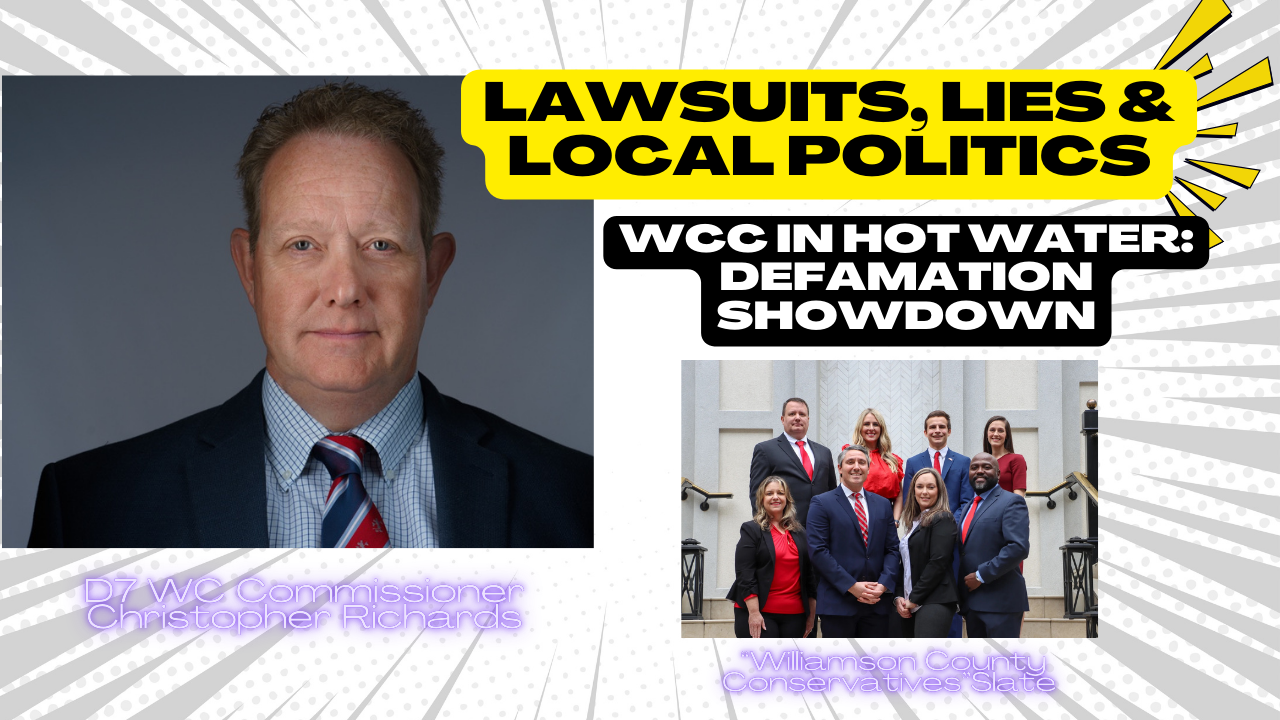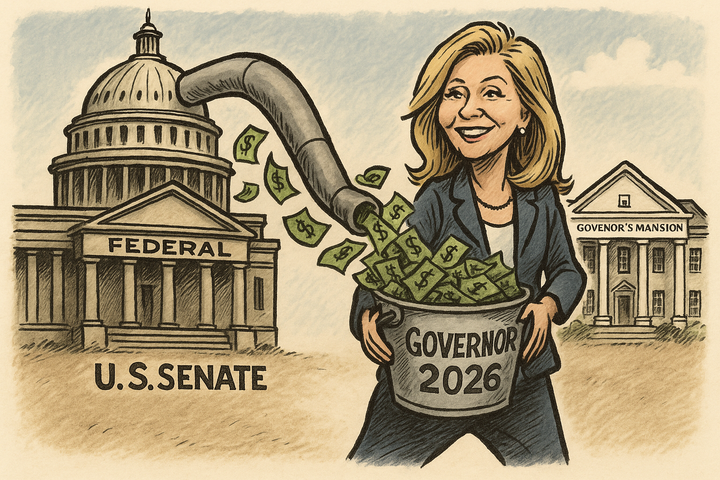A defamation suit looms after a PAC misses a deadline to retract claims about Commissioner Richards. With no verified proof offered, the case may hinge more on politics than truth—raising questions about public trust ahead of 2026’s local races.
Franklin, TN — March 25, 2025 — The already embattled Williamson County Conservatives PAC has received a legal threat from District 7 Commissioner Christopher Richards in response to claims made about his role in the controversial March 4 Williamson County Republican Party (WCRP) Reorganization Convention.
In a letter sent March 24 by Richards' legal counsel, the PAC was asked to retract five statements involving alleged misconduct, including claims that Richards mishandled ballots, encouraged votes for a specific slate of candidates, and intimidated voters. The letter demanded either a full retraction and deletion of the posts or the presentation of proof by March 25.
The March 25 deadline has come and gone with no public response or retraction from the PAC, making legal action by Commissioner Richards increasingly likely. For the PAC, a retraction would amount to more than just backing down—it would be a tacit admission that its most serious claims were knowingly false or at least irresponsibly made. Which then begs the question: If that wasn't exactly true, what about the rest of the claims? Are they as factually precarious?
This comes as the group’s political ambitions and alignments come under new scrutiny. The PAC, which reportedly received fundraising support from Senate Majority Leader Jack Johnson, had backed Brian Clifford’s bid for WCRP Chairman and is expected to support his potential run for Williamson County Mayor in 2026.
Legal experts note that while the threshold for public officials to win defamation suits is high, the statements made could be challenged under the precedent set by the U.S. Supreme Court in New York Times Co. v. Sullivan (1964). Under Sullivan, a public official must prove that a defamatory statement was made with "actual malice"—that is, with knowledge of its falsity or with reckless disregard for the truth. Richards’ counsel may argue that the PAC knowingly published statements without verifying their accuracy, especially given the specific and serious nature of the claims.
No word yet on whether Commissioners Mary Smith, Barb Sturgeon, or Lisa Hayes—each of whom was also named in similar accusations—will join Richards in legal action. While Richards, and Hayes, were public supporters of the Elevate slate, there is no verified evidence that either of them engaged in unethical behavior or improper electioneering on the day of the convention. Allegations made by the Williamson County Conservatives remain unsubstantiated complaints, not findings of fact.
Background: Why the Convention Is Being Contested
The WCRP Reorganization Convention has become one of the most contentious political events in recent Tennessee history. Contestants aligned with the Williamson County Conservatives filed a formal challenge with the Tennessee Republican Party on March 9, seeking to nullify the election results. Their brief, submitted March 18, outlines numerous alleged procedural violations and election-related concerns, including:
- Failure to follow TRP bylaws on scheduling and notice
- Secret meetings of the Credentials Committee
- Improper ballot handling
- Denial of poll watchers
- Voter intimidation
- Electioneering inside voting areas
These claims are based on witness declarations and statements gathered by the group but have not been independently verified. As of now, they remain allegations under review and should be viewed as such.
According to sources within the Tennessee Republican Party's State Executive Committee (SEC), the Williamson County Conservatives have thus far not provided documentation or evidence that would meet the high burden of proof required to justify a historical nullification of election results. This raises a critical question: Was the goal to nullify what they saw as an unfavorable result—or was it instead a strategic effort to damage the reputations of political opponents who are likely to run in the 2026 election cycle? If the latter, it suggests an attempt to influence future contests before they have even begun.
A Struggle for Visibility
Despite the serious nature of the allegations and legal threats, the Williamson County Conservatives’ social media campaign has struggled to gain traction. Posts on the PAC’s Facebook and other platforms have consistently garnered responses from only a dozen or so users—many of them the same individuals. The low engagement raises questions about the group’s broader support and reach, even as it presses for major action from the Tennessee Republican Party.
What’s Next
With the March 25 deadline passed and no retraction issued, the path now appears to lead toward litigation. Commissioner Richards and potentially others may soon take formal legal action to defend their reputations. Meanwhile, the Tennessee GOP’s State Executive Committee is under pressure to rule on the contest of the March 4 election—a decision that could reshape the power structure of the party in Williamson County for years to come.
With public trust and internal unity at stake, the road ahead promises to be just as combative as the convention that sparked it all—especially if voters begin to conflate unproven accusations and political maneuvering with actual misconduct. If the public grows distrustful, it may be less about what truly happened and more about the perception shaped by strategic smears rather than substantiated facts.
If you support what I do, please consider donating a gift in order to sustain free, independent, and TRULY CONSERVATIVE media that is focused on Middle Tennessee and BEYOND!





Comments ()